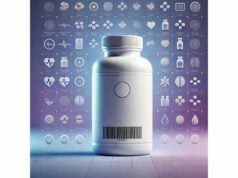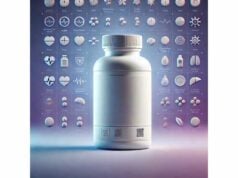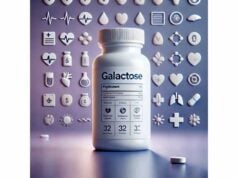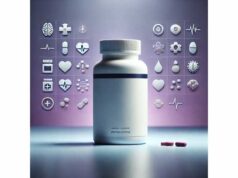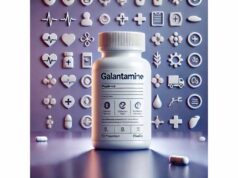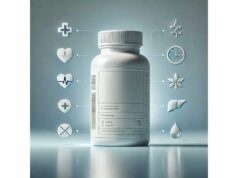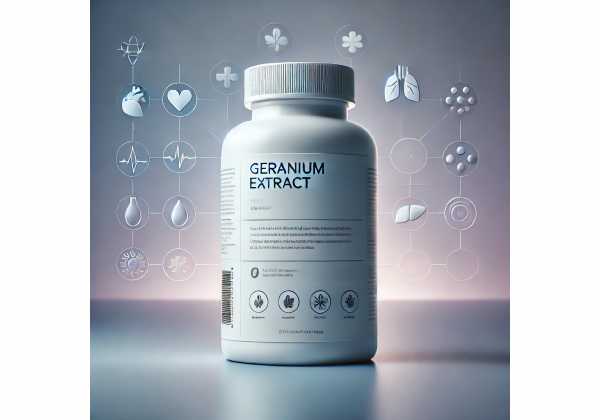
Geranium extract is an umbrella term for two popular products from the Pelargonium genus: the aromatic rose geranium (Pelargonium graveolens) used mainly in skincare and aromatherapy, and the medicinal root extract of Pelargonium sidoides (often labeled EPs 7630) taken for acute coughs and common colds. Both are plant-derived, but they differ in chemistry, uses, and dosing. Rose geranium essential oil is rich in citronellol and geraniol and valued for its soothing scent, skin-friendly feel, and antimicrobial properties in lab tests. EPs 7630 is a standardized oral herbal extract with clinical research showing it can ease acute bronchitis and shorten recovery time when used promptly. This guide explains what each “geranium extract” can—and cannot—do, how to use them safely, and the side effects to watch for so you can choose the right product for your goal.
Quick Overview
- EPs 7630 may shorten acute cough duration and help daily activity resume sooner.
- Rose geranium oil offers a calming scent and lab-shown antimicrobial activity for topical formulas.
- Typical EPs 7630 adult dose: 1.5 mL liquid or one 20 mg tablet three times daily for up to 14 days.
- Skin sensitization is possible with fragrant oils; patch test and keep leave-on dilutions low.
- Avoid oral EPs 7630 in pregnancy, significant liver disease, or if your clinician advises against it.
Table of Contents
- What is geranium extract?
- Does it work and key benefits
- How to use it day to day
- How much to take and for how long?
- Common mistakes and fixes
- Side effects and who should avoid
- Evidence at a glance
What is geranium extract?
“Geranium extract” usually refers to one of two distinct products:
1) Rose geranium essential oil (Pelargonium graveolens).
This is a steam-distilled essential oil from leaves and flowers of P. graveolens (also called “rose geranium” or “Egyptian geranium”). Chemically, it is a fragrant mixture dominated by citronellol and geraniol alongside linalool, isomenthone, and other terpenes. The oil is lipophilic, volatile, and used in cosmetics, aromatherapy, and perfumery. In lab studies, rose geranium oil and its extracts can inhibit certain bacteria and fungi at adequate concentrations. For skin care, formulators use low leave-on percentages to add a soft, floral-green aroma and support a pleasant sensorial feel. Because it contains recognized fragrance allergens (for example, geraniol and citronellol), careful dilution and patch testing are important, especially for sensitive skin.
2) Pelargonium sidoides root extract (EPs 7630).
EPs 7630 is a standardized extract made from the roots of P. sidoides, a South African species traditionally used for respiratory complaints. Unlike the essential oil, EPs 7630 is not primarily fragrant; it is a polyphenol-rich, aqueous-ethanolic extract designed for oral use in liquid drops or tablets. Clinical trials and meta-analyses indicate benefits for acute bronchitis and common colds—particularly faster improvement of cough and earlier return to normal activities compared with placebo. Typical regimens are short (about one to two weeks), reflecting its use for acute respiratory infections rather than long-term prevention.
Key differences you should know
- Botany and part of plant: P. graveolens leaves/flowers (oil) vs. P. sidoides roots (oral extract).
- Main use: Cosmetic/aromatherapy vs. evidence-based support for acute coughs/bronchitis.
- Dosing form: Diluted topical or diffusion vs. measured oral dose (drops or tablets).
- Safety focus: Fragrance allergy risk for the oil vs. GI upset and rare liver concerns for EPs 7630.
If your goal is skincare aromatics or a calming diffuser blend, choose rose geranium oil and keep dilutions conservative. If your goal is to address an acute cough or uncomplicated cold, check labels for “Pelargonium sidoides” or “EPs 7630” and follow the oral dosing guidance below.
Does it work and key benefits
For acute coughs and colds (EPs 7630):
Modern clinical evidence for EPs 7630 is stronger than for many over-the-counter cough remedies. Randomized, placebo-controlled trials and meta-analyses in adults and children report that EPs 7630 can reduce cough severity, speed overall symptom relief, and help people feel well enough to resume daily activities earlier than placebo. In adult acute bronchitis, pooled analyses show a meaningful reduction in days off work (about a couple of days on average) and higher rates of being “fit for work” by day seven when used at the marketed dose. Patient-rated outcomes like quality of life and ease of expectoration also tend to improve sooner with the extract. Mechanistic work suggests a multi-pronged action—modulating innate immune responses, reducing viral attachment/replication in vitro, and improving mucociliary clearance—consistent with its broad benefits across common viral respiratory infections.
For skin and sensorial experience (rose geranium oil):
In vitro and application-oriented studies show antimicrobial and antifungal activity of rose geranium essential oil and solvent extracts against organisms commonly implicated in product spoilage or skin issues. While lab concentrations do not translate directly to leave-on cosmetic doses, these findings help explain why small amounts of the oil are used to subtly freshen formulas and support a balanced sensory profile. Many users appreciate the oil’s bright, rosy-green aroma for stress relief in diffuser blends; anecdotally, it pairs well with lavender, bergamot, and cedarwood. Limited small clinical work also explores geranium oil in oral care niches (e.g., denture stomatitis) where antifungal action matters, though this remains specialized and not a general recommendation.
Where expectations should stay realistic
- EPs 7630 helps with acute coughs and colds; it is not a cure-all, not an antibiotic, and not a chronic respiratory therapy. Benefits are greatest when started early in the illness course and taken consistently for about a week.
- Rose geranium oil enriches skincare’s sensorial experience and may support cosmetic preservation strategies when used correctly, but it is not a standalone disinfectant or acne drug and should not be applied neat to the skin.
What about mood and stress?
Aromatherapy with rose geranium is widely used for relaxation and perceived mood support. The evidence base here is lighter and more heterogeneous than for EPs 7630 in coughs, but aroma-based routines can be a harmless adjunct for many people when used safely and in ventilated spaces.
How to use it day to day
If your goal is relief from an acute cough or uncomplicated cold
- Choose a product labeled Pelargonium sidoides or EPs 7630. Forms include oral solution (drops) and tablets.
- Start at the first sign of acute cough, sore throat, or cold symptoms. Early initiation appears to correlate with faster relief.
- Take doses three times daily with regular spacing (morning, midday, evening). Short, consistent courses work best.
- Combine with supportive care: rest, hydration, and, if needed, simple analgesics or saline nasal rinses. EPs 7630 is not a substitute for antibiotics when they are actually indicated; it is used for uncomplicated viral infections.
If your goal is better-smelling, skin-friendly routines with rose geranium oil
- Leave-on skincare: Blend at low percentages, often ≤1% of the final formula for face products (creams, serums, oils). Sensitive skin may prefer 0.25–0.5%.
- Rinse-off products: Body washes and shampoos can tolerate higher percentages, but formulators typically stay modest to avoid sensitization.
- Aromatherapy diffusion: Use a few drops in a water-based diffuser for 15–30 minutes in a ventilated room; avoid prolonged continuous diffusion in enclosed spaces or around pets and young children.
- Patch test new leave-on products on the inner forearm for 24–48 hours before wider use.
- Storage: Keep essential oil in a dark, tightly closed bottle away from heat and light. Oxidized oils increase sensitization risk.
Smart combinations
- With honey or throat lozenges (EPs 7630): A soothing lozenge or a spoon of honey at bedtime complements daytime oral dosing for cough comfort.
- With barrier-supporting skincare: Pair rose geranium oil–scented products with ceramides, glycerin, or panthenol. Let barrier builders do the heavy lifting; keep fragrance levels low.
- With saline sprays: For cold symptoms, nasal saline plus EPs 7630 is a practical combo.
When to get medical advice instead of DIY
Seek medical care promptly if you have high fever, chest pain, shortness of breath, cough lasting more than three weeks, coughing up blood, repeated infections, or any red flag condition (e.g., immunosuppression, severe asthma/COPD flare). Stop all products and get help if you develop signs of an allergic reaction (facial swelling, hives, wheezing) or any symptoms of liver trouble (dark urine, yellow eyes/skin, abdominal pain).
How much to take and for how long?
EPs 7630 (Pelargonium sidoides root extract)
- Adults: A commonly used regimen is 1.5 mL of oral solution three times daily (approximately 30 drops per dose) or one 20 mg tablet three times daily.
- Timing: Take before meals when possible. Begin at onset of symptoms and continue for 7–14 days, or 2–3 days after symptoms resolve, whichever comes first. Do not exceed two weeks unless a clinician advises otherwise.
- Children: Pediatric dosing exists for syrup/oral solution in some products, but ranges by age and brand. Follow the product’s pediatric label or a clinician’s guidance.
- Missed dose: Take it when remembered if not close to the next dose; do not double up.
- Hydration: Maintain fluid intake; it helps with mucus clearance.
Rose geranium essential oil (Pelargonium graveolens)
- Leave-on face products: Many formulators target 0.25–1%. Sensitive or rosacea-prone skin should stay at the low end or avoid fragrance altogether.
- Body products or rinse-off: Percentages can be higher, yet conservative levels reduce sensitization risk over time.
- Aromatherapy: Start with 3–5 drops in a diffuser for 15–30 minutes. Pause diffusion between sessions and ventilate the room.
- Patch testing: Always patch test new leave-on blends (especially if you have a history of eczema, allergic contact dermatitis, or fragrance sensitivity).
Quality and labeling tips
- Look for clear species names: Pelargonium graveolens (essential oil) vs. Pelargonium sidoides (EPs 7630).
- For the essential oil, check the INCI on cosmetics and the batch/lot and best-by date.
- For oral products, confirm the dose per mL or per tablet, and check alcohol content if you avoid ethanol.
- In the EU and many markets, fragrance allergens must be listed on cosmetic labels above specific thresholds (e.g., geraniol, citronellol); this helps sensitive users decide.
When to stop
- EPs 7630: If your acute cough/bronchitis symptoms resolve, you can stop; continuing beyond two weeks typically adds no benefit for uncomplicated illness.
- Geranium oil products: Discontinue if you develop irritation or dermatitis where applied, and switch to fragrance-free options while your skin barrier heals.
Common mistakes and fixes
Mistake 1: Mixing up species and buying the wrong product.
Because “geranium extract” can mean an aromatic oil or an oral cough remedy, shoppers sometimes buy a diffuser oil when they intended a throat/cough product, or vice versa. Fix: For respiratory support, look for Pelargonium sidoides or EPs 7630 on the front label. For skincare or aroma, look for Pelargonium graveolens essential oil in a cosmetic or aromatherapy product.
Mistake 2: Using essential oil neat on skin.
Undiluted application raises the risk of irritation or allergic contact dermatitis. Fix: Dilute properly in a finished formula or carrier, keep face use at very low percentages, and patch test.
Mistake 3: Expecting EPs 7630 to replace needed antibiotics.
While EPs 7630 can speed recovery in viral acute bronchitis and colds, it is not an antibiotic. Fix: Use it early for uncomplicated acute coughs. If your clinician diagnoses bacterial pneumonia, severe sinusitis with high fever, or another condition warranting antibiotics, follow that plan.
Mistake 4: Stopping EPs 7630 after only a day or two.
Clinical trials usually dosed for about 7 days. Too short a course may blunt benefits. Fix: Take the full short course (up to 14 days, or 2–3 days beyond symptom resolution) unless side effects occur.
Mistake 5: Over-diffusing essential oils in closed rooms.
Continuous, high-intensity diffusion can cause headaches or throat irritation. Fix: Limit sessions to 15–30 minutes, ventilate the room, and keep diffusers away from infants, pets, and those with asthma unless cleared by a clinician.
Mistake 6: Ignoring product age and storage.
Oxidized essential oils are more irritating. Fix: Store tightly capped in dark glass, minimize air exposure, and discard oils that smell “off” or are well past their best-by date.
Mistake 7: Skipping the label details on allergens.
Fragrance allergens like geraniol and citronellol must be declared on cosmetic labels above regulated thresholds. Fix: If you are sensitive, scan the ingredient list and choose fragrance-free or low-fragrance alternatives.
Side effects and who should avoid
EPs 7630 (oral, Pelargonium sidoides)
- Common: Mild gastrointestinal upset (nausea, stomach discomfort), occasional heartburn, and rarely headache or rash.
- Liver: There have been sporadic reports of suspected herb-related liver injury in the past. Causality assessments have often been weak or inconclusive, and larger safety reviews and pediatric trials report good overall tolerability. Still, prudence is warranted: avoid if you have active or significant liver disease unless a clinician approves and monitors you. Stop and seek care if you develop jaundice, dark urine, severe fatigue, or abdominal pain.
- Bleeding risk: Animal data show no effect on warfarin pharmacokinetics or anticoagulant action at high doses; human interaction data are limited. If you take anticoagulants, anti-platelets, or have a bleeding disorder, discuss EPs 7630 with your clinician before use.
- Pregnancy and breastfeeding: Robust safety data are lacking. Avoid unless your clinician advises otherwise.
- Allergies: Do not use if you’re allergic to Pelargonium species or any excipients in the product (check alcohol content if relevant).
Rose geranium essential oil (topical/aromatherapy)
- Skin: The main risks are irritation and allergic contact dermatitis, driven by fragrance allergens (e.g., geraniol, citronellol). The risk rises with higher leave-on concentrations or oxidized oil. Sensitive users, those with eczema, or anyone with a history of fragrance allergy should patch test and consider fragrance-free routines.
- Eyes and mucosa: Avoid contact; essential oils can sting and inflame mucous membranes.
- Respiratory: Diffuse in well-ventilated spaces. People with asthma or odor sensitivity may find perfumed air aggravating.
- Pregnancy, infants, pets: Keep aromatherapy conservative and seek individualized advice; when in doubt, avoid diffusion around newborns, and ventilate rooms thoroughly.
When to seek medical care immediately
New-onset breathing trouble, hives or facial swelling, severe abdominal pain, yellowing of the skin or eyes, confusion, or symptoms that worsen or persist beyond two weeks should prompt medical evaluation. For children, older adults, and those with chronic heart-lung conditions, err on the side of contacting a clinician early in the illness.
Evidence at a glance
EPs 7630 for acute respiratory infections
Multiple randomized, placebo-controlled trials and meta-analyses show that short courses of EPs 7630 improve key outcomes in acute bronchitis and common colds: faster remission of cough, improved patient-reported quality of life, and earlier return to work or usual activities. In adult acute bronchitis, meta-analytic pooling of trials using the marketed dose suggests approximately 1–2 fewer days off work versus placebo by day seven, and a higher proportion of people “fit for work” at one week. Pediatric studies, including pre-school children, consistently report good tolerability and faster symptom improvement compared with placebo in several respiratory indications. Mechanistic research demonstrates antiviral, antibacterial anti-adhesion, immunomodulatory, and mucociliary effects that plausibly explain clinical findings.
Rose geranium (Pelargonium graveolens) oil and extracts
In vitro and application-oriented research shows antibacterial, antifungal, and antiviral activity against a range of organisms at adequate concentrations. Composition studies consistently identify citronellol and geraniol as leading constituents, though exact percentages vary by cultivar, harvest timing, and geography. Small, niche clinical studies explore topical uses (e.g., oral prosthetics care), but broad, high-quality clinical evidence for general dermatologic benefits remains limited. The primary value in everyday cosmetics is sensory (pleasant aroma) with adjunct antimicrobial support in well-designed formulations.
Safety highlights
EPs 7630 demonstrates a favorable safety profile in large pediatric and adult datasets with mostly mild, transient adverse events. For rose geranium oil, the main safety issue is fragrance sensitization; modern regulations require individual labeling of many fragrance allergens above low thresholds in cosmetics, helping sensitive users avoid triggers. As with all botanicals, quality, correct identification, and appropriate dosing make the biggest difference between benefit and bother.
References
- Effects of Pelargonium sidoides extract EPs 7630 on acute cough and quality of life – a meta-analysis of randomized, placebo-controlled trials 2022 (Systematic Review)
- Effects of EPs 7630 on the duration of inability to work in acute bronchitis – a meta-analysis 2023 (Systematic Review)
- Multiple mechanisms enable broad-spectrum activity of the Pelargonium sidoides root extract EPs 7630 against acute respiratory tract infections 2024 (Review)
- Evaluation of Essential Oils and Extracts of Rose Geranium and Rose Petals as Natural Preservatives in Terms of Toxicity, Antimicrobial, and Antiviral Activity 2021
- Commission Regulation (EU) 2023/1545 of 26 July 2023 amending Annex III to Regulation (EC) No 1223/2009 as regards the labelling of fragrance allergens in cosmetic products 2023 (Regulation)
Disclaimer
This guide is for general information and education only. It is not a substitute for personalized medical advice, diagnosis, or treatment. Do not start, stop, or change any medication or supplement without consulting a qualified healthcare professional—especially if you are pregnant, breastfeeding, have liver or bleeding disorders, take prescription drugs (such as anticoagulants), or are managing chronic respiratory disease. If you experience concerning symptoms or an allergic reaction, stop the product and seek medical care.
If you found this article useful, please consider sharing it on Facebook, X (formerly Twitter), or your favorite platform, and follow us for more evidence-based health content. Your support helps us continue creating helpful, high-quality guides. Thank you.

